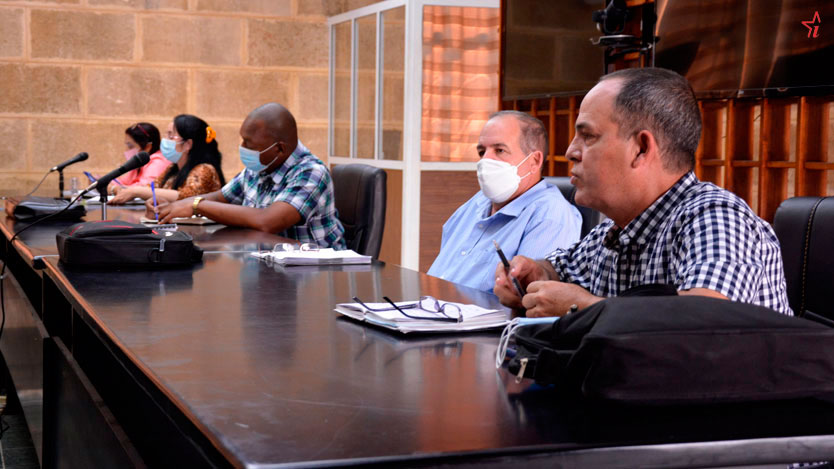
The need for public information to be in the Ciego de Ávila media and for them to reflect it with creativity, truthfulness and immediacy, it was once again the call to journalists of the region who, in the prelude to the Cuban Press Day, held a meeting with the main authorities of the province.
Carlos Luis Garrido Pérez, a member of the Central Committee and first secretary of the Party in the province, urged them to lead a fight in which they all have to join and be more effective. "Although many have already managed to position labels that have been a trend in the country, they can still do more with the resources they have."
In addition to the directors present alluding to 14 Popular Councils without mobile data service and a still unsatisfied demand for Nauta Hogar (with just over 6,000 users connected to this modality), the reporters have been privileged in terms of connectivity, hence the challenge is to be more effective.
For this reason, “it is important that the communication policy of the organizations does not conflict with the general policy of the country, of providing information to the media,” Invasor reporter Sayli Sosa said when alluded to the contradiction of several organizations that did not conceive or they refused the participation of the press in their annual accounts.
Other reporters from that medium also alluded to the challenge of recreating a reality from all angles, since triumphalism is often seen in headlines and news that later do not translate into everyday life. On the other hand, they specified, criticisms are launched without arguments to support them.
On this aspect, the first secretary alleged that it was up to the Ciego de Ávila media to accompany even more complex processes that today need to be exposed. “We are reviewing the cost sheets of the products, state and private, and that must be reflected; you have to go to the companies to see how they are applying the 43 measures, or to those that have losses, to see how they plan to solve the problem. These are issues that should have a greater presence in our media, because today everything we do to increase production and curb inflation. You have to count the good and the bad experiences.”
However, Garrido Pérez recognized that there has not always been a close link between organizations and the media, hence the importance of having a work system that feeds them back and allows the entities to respond to the criticism and questions reflected in the press.
